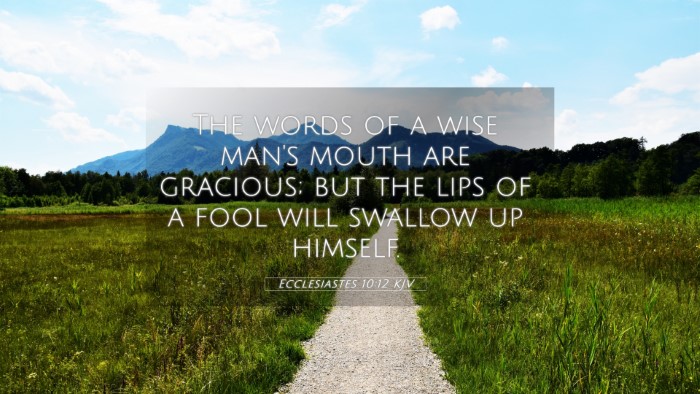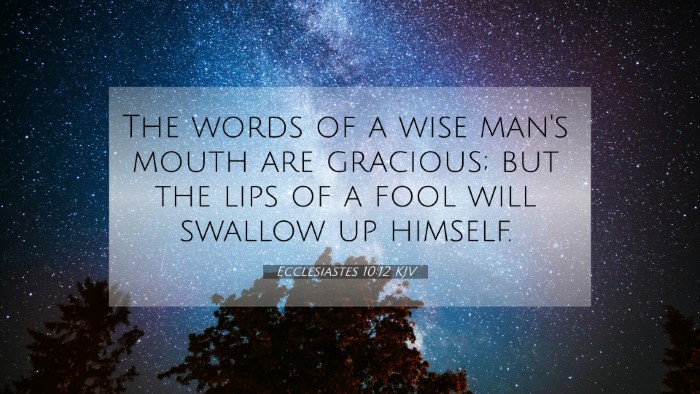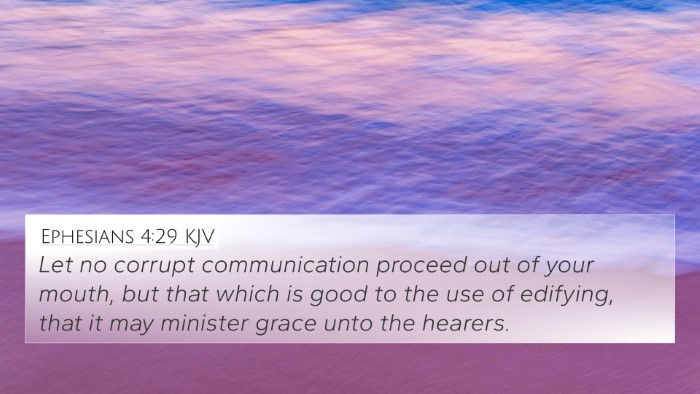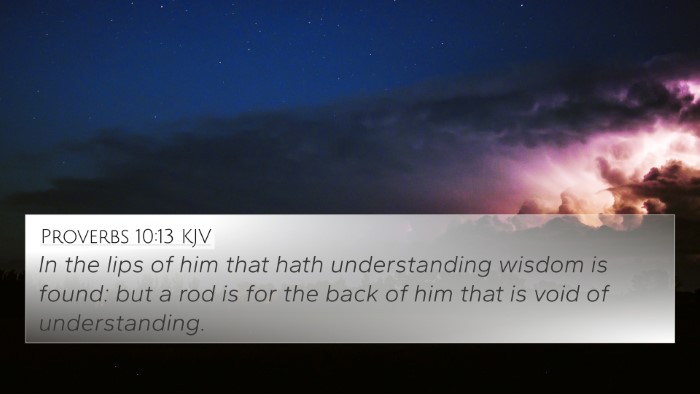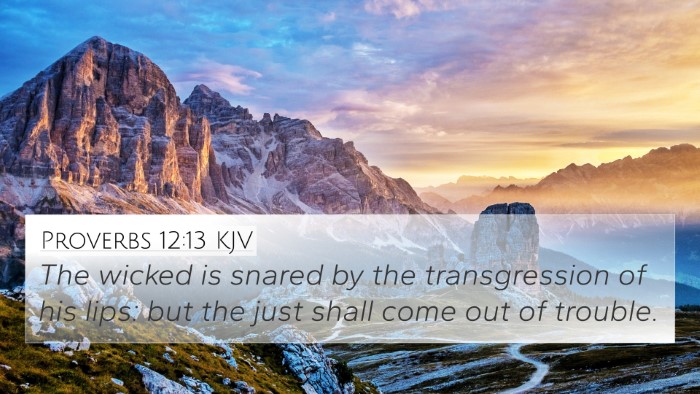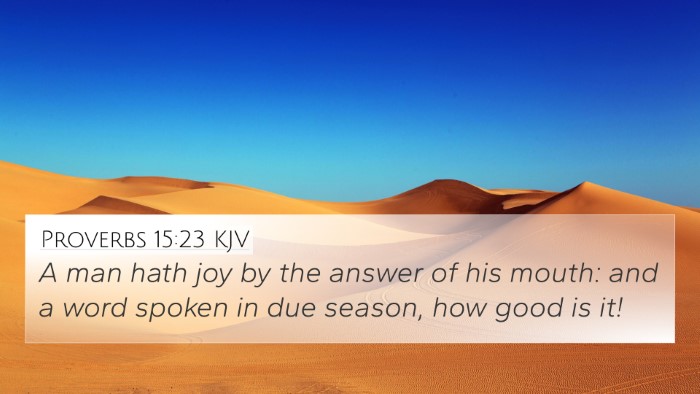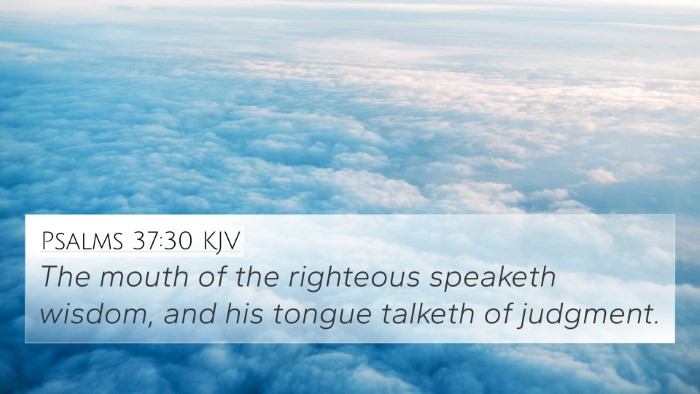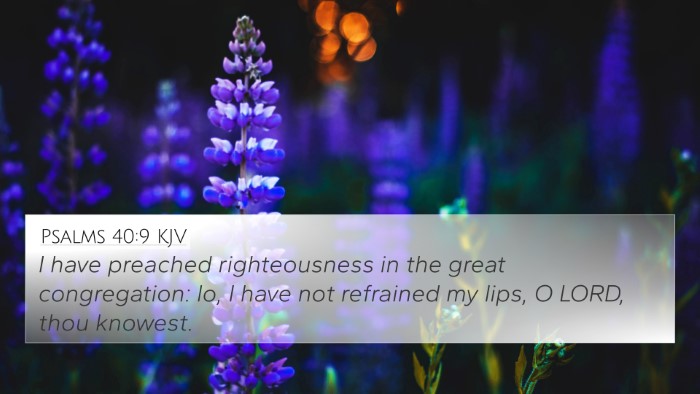Understanding Ecclesiastes 10:12
Ecclesiastes 10:12 states: "The words of a wise man’s mouth are gracious; but the lips of a fool will swallow up himself." This verse draws a distinction between the speech of the wise and that of the foolish, emphasizing the implications of one's words and the character they reflect.
Meaning and Explanation
This verse highlights important themes regarding wisdom and folly in communication.
- Gracefulness of the Wise: The wise use words that are gracious and kind. This reflects a deep understanding of the power of speech, as their words can uplift, bring peace, and encourage.
- Destructive Nature of Foolish Speech: In contrast, foolish speech often leads to self-destruction. The fool's words may be unwise or lacking in consideration, ultimately leading to their own downfall.
- Character Reflection: The speech of an individual not only communicates information but also reveals the heart and character. A wise person will speak thoughtfully, indicating inner wisdom.
Insights from Commentators
Various public domain commentaries provide insights into Ecclesiastes 10:12:
- Matthew Henry: Henry emphasizes the importance of wise speech and its positive outcomes, contrasting it with the destructive nature of foolish words. He explains how the wisdom of notable individuals can lead to gracefulness in their communication.
- Albert Barnes: Barnes discusses the consequences of foolish speech and how it can lead to a person's ruin. He advocates for careful consideration in one’s words as a mark of true wisdom.
- Adam Clarke: Clarke focuses on the imagery of swallowing up oneself, likening it to how foolish behavior consumes a person, leading to their own defeat. He draws parallels with other biblical texts to illustrate the potency of wise counsel.
Bible Cross-References
Ecclesiastes 10:12 connects with several other Bible verses that illuminate its themes:
- Proverbs 10:14: "Wise men lay up knowledge: but the mouth of the foolish is near destruction." This complements the idea that wise speech preserves wisdom while foolishness leads to ruin.
- James 1:19: "Let every man be swift to hear, slow to speak, slow to wrath." This emphasizes the importance of thoughtful communication.
- Proverbs 18:21: "Death and life are in the power of the tongue: and they that love it shall eat the fruit thereof." This reinforces the notion of the power of words and their outcomes.
- Proverbs 15:1: "A soft answer turneth away wrath: but grievous words stir up anger." Here, the impact of gracious speech is highlighted.
- Matthew 12:37: "For by thy words thou shalt be justified, and by thy words thou shalt be condemned." This foreshadows the accountability of speech.
- Proverbs 29:20: "Seest thou a man that is hasty in his words? there is more hope of a fool than of him." This warns against reckless speech.
- Colossians 4:6: "Let your speech be always with grace, seasoned with salt, that ye may know how ye ought to answer every man." This mirrors the graciousness mentioned in Ecclesiastes.
Thematic Bible Verse Connections
The themes of wisdom and folly are prevalent throughout Scripture, forming an interconnected web of teachings:
- Wisdom vs. Folly: The contrast continues in Proverbs 1:7 which states that "The fear of the Lord is the beginning of knowledge: but fools despise wisdom and instruction."
- Gracefulness in Speech: Ephesians 4:29 advises believers, "Let no corrupt communication proceed out of your mouth, but that which is good to the use of edifying." This aligns with the graciousness found in wise communication.
- Self-Reflection: Proverbs 12:18 mentions, "There is that speaketh like the piercings of a sword: but the tongue of the wise is health." Here, the contrast continues, emphasizing the effects of speech on health and well-being.
- Accountability for Words: Romans 14:12 states, "So then every one of us shall give account of himself to God." This stresses the weightiness of the words we choose to speak.
Conclusion
Ecclesiastes 10:12 serves as a crucial reminder of the impact our words can have. By drawing from the wisdom of various commentaries and recognizing the scriptural connections, one can appreciate the depth of this verse. The emphasis on the graciousness of wise speech versus the dangers of foolish words invites reflection on our communication in everyday life.
Tools for Bible Cross-Referencing
For those interested in exploring the connections among Bible verses, several tools and methods can help:
- Utilizing a Bible concordance is instrumental in finding specific topics and their related verses.
- A cross-reference Bible study can assist in drawing parallels between key themes across scriptures.
- Implementing a Bible cross-reference guide can streamline the process of identifying connections between scripture passages.

